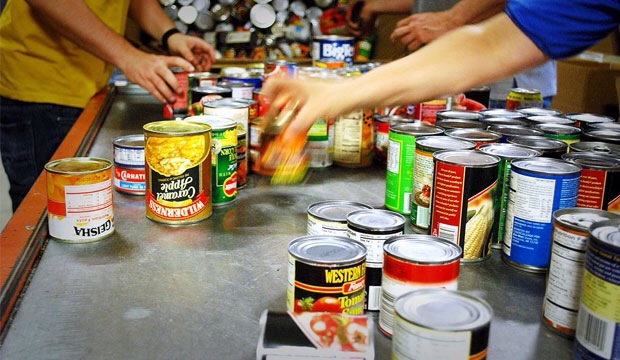They seem to have become the byword for the post financial crash and now new research indicates that the demand for foodbanks is underestimated with large numbers of people thought to be at risk of malnutrition in the UK.
Dr Kingsley Purdam says that the rapid growth in the number of foodbanks and food donation points in supermarkets suggests a ‘normalisation’ of food aid for the future.
Older people, he says, are greatly at risk, through what he terms food insecurity.
His research The drew on survey evidence, case studies of foodbanks and interviews with foodbank users, and identified that in one Northwest city, there are seven Trussell Trust foodbanks, and a further thirty other food aid providers in the area.
It throws your pride out of the window…I am doing it for my kids, I am not going to make my kids suffer just because of my pride.” (Female, 34).
The survey also found that substantial numbers of people are constrained in their food choices and are skipping meals to prioritize their families.
The Government spends an estimated £13 billion on disease-related malnutrition each year (BAPEN 2012). The National Institute for Health and Care Excellence has identified better nutrition as one of the key cost-saving initiatives for the NHS.
Dr Purdam said: “In political and media debates foodbank users have been variously described as being: ‘opportunists’, ‘not able to cook or budget’ and ‘living like animals’. Yet evidence from the Citizens Advice Bureau suggests that the main reported reason for referring a person to a foodbank was a delay in benefit payments.
We say to my mum make sure you eat but she says she’s not hungry…she’s just making sure we eat first.” (Child visiting foodbank with her mother).
“Moreover, the research suggests that people using foodbanks have a clear understanding of the costs of food and are limited in how they could change their financial circumstances. Many people were reluctant to use a foodbank because of the stigma and embarrassment. Grandparents and parents reported skipping meals so their children could eat, and also stated that they were not able to afford to have their children’s friends around for tea.”
Dr Purdam said there seems to be an inevitability to the scale of food insecurity given the economic recession and the present welfare reforms. He said: “Many of the foodbank users we spoke to seemed to be surviving from week to week even day to day. Some of the older people in need of food aid were not able to collect food parcels themselves and were having parcels delivered. Moreover, many people in need of food aid may not live near a foodbank. We also found that some of the foodbanks were running low on food supplies.”
“Whilst local authorities have provided some funding, food aid is predominantly reliant on volunteers, food donations and the support of supermarkets and food manufacturers.”
He said: “It can be questioned why the levels of food insecurity and malnutrition are so high in the UK and whether the government’s reliance on food aid is economically and politically efficient given the impact on people’s health and well-being”.
“Food has an important role in defining our identities and in terms of family relationships. Yet this seems to have been neglected in the political debates surrounding food aid.”







